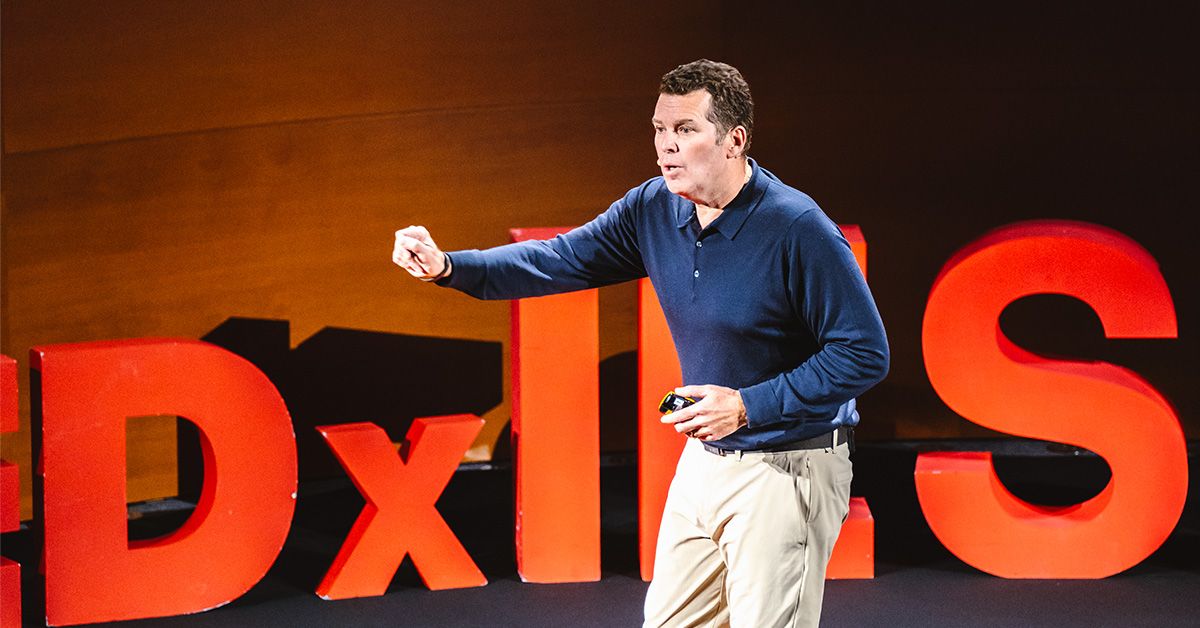Whether you’re on a journey to lead SEALs into combat, sing on a world stage, or sail the seven seas, the sooner you understand how habits work, the sooner you’ll be on your path to success. Habits are nothing more than a specific sequence of actions. Almost every action you take is part of a larger collection. A habit is a set of activities that, after repeated practice, become unconscious. The good news is that habits are completely within your control. The trick is to recognize the habit you want to change, identify the actions of that habit, and make the changes necessary to create a new habit. And critical habits, those that immediately affect your survival or wellbeing, can be created even faster. Take opening a parachute, for example. It did not take me twenty-one days to build that habit!
The “Fish Discovered Water Last” Mindset
Think about the concept of a fish “discovering” water. It’s a funny idea, really—fish already live in water and know nothing else. They have no frame of reference to compare it to. Just as the fish would be the last creatures on earth to discover the idea of water, human beings are the last to discover their assumptions about reality because we are so immersed in them. We do not understand what we do not know. We are the last to discover our assumptions about reality because we are so immersed in them. This is why it is so important to be aware of our habits and the actions that comprise them, because once they become automatic, we may not realize we’re doing them. It is only by recognizing our habits and making the conscious decision to change them that we can hope to improve our lives and achieve our goals.
How to Become Aware of Automatic Habits
Some ways to become more aware of automatic habits include paying attention to your body and its signals, being mindful of your thoughts and feelings, keeping a journal, taking notice of your surroundings, and talking to others about their habits. When you are aware of the actions that make up your habitual behavior, you can begin to change them if you so choose.
1. Pay Attention to Your Body. One way to become more aware of your habits is to pay attention to your body and the signals it’s sending you. For example, if you’re used to eating junk food, you may not feel as good as you could if you ate healthier. Conversely, if you’re used to getting a lot of exercise, then you may feel better when you’re active. Paying attention to how your body feels can be a helpful way to monitor your habits and make changes as needed. Other body signals that can clue you into your habits include things like cravings, energy levels, and how well you sleep.
2. Be Mindful of Your Thoughts and Feelings. This means being present in the moment and observing your thoughts and emotions without judgment. For example, if you notice that you’re feeling stressed, then see if you can identify the thoughts and emotions that are causing that stress. If you can, then see if there’s anything you can do in the moment to change those thoughts or emotions. If not, then simply observe them without judgment and let them pass. This nonjudgmental awareness can be a helpful way to monitor your habits and make changes as needed.
3. Take Notice of Your Surroundings. This includes things like the people you’re with, the place you’re in, and what you’re doing. For example, if you’re with friends at a party and you notice that you’re feeling tempted to drink alcohol, then take a step back and observe the situation. Are your friends pressuring you to drink? Is there something about the environment that’s making you feel like you need to drink? If so, then see if there’s anything you can do to change the situation or remove yourself from it. This awareness of your surroundings can be a helpful way to monitor your habits and make changes as needed.
4. Keep a Journal. This can help you to see patterns in your behavior and make the changes that will help your lifestyle better align with your goals. For example, do you tend to scroll on your phone for an hour in bed? Are you an early riser? Do you tend to buy your coffee out or make it at home? This can help you to see patterns in your behavior and make the changes that will help your lifestyle better align with your goals.
5. Talk to Others About Their Habits. This can be a helpful way to gain insight into your behavior. Simply being aware of the fact that habits exist and that they can be changed is a powerful step in the right direction. Talking to others about their habits can also help you to better understand why they have the habits they do and how they’ve been able to change them. This understanding can help change your habits.
Awareness is the Beginning of Change
Habits are an important part of our lives and can impact our health, happiness, and overall well-being. Simply being aware of the fact that habits exist and that they can be changed is a powerful step in the right direction. Once you’re aware of your behavior, you can begin to make the changes that will help improve your life. The process for creating good habits is no different than the one for bad habits. All we have to do is break down larger goals into smaller, more manageable steps. This not only helps us set more realistic expectations but also gives us a clear roadmap for achieving our objectives. By tackling one small part at a time, we can avoid feeling overwhelmed and make progress towards our goal.
Check out our Resources and Courses pages for more information on shifting your mindset and reaching your full potential. And don’t forget to sign up for our free monthly newsletter to get regular tips, inspiration, and advice delivered straight to your inbox.





